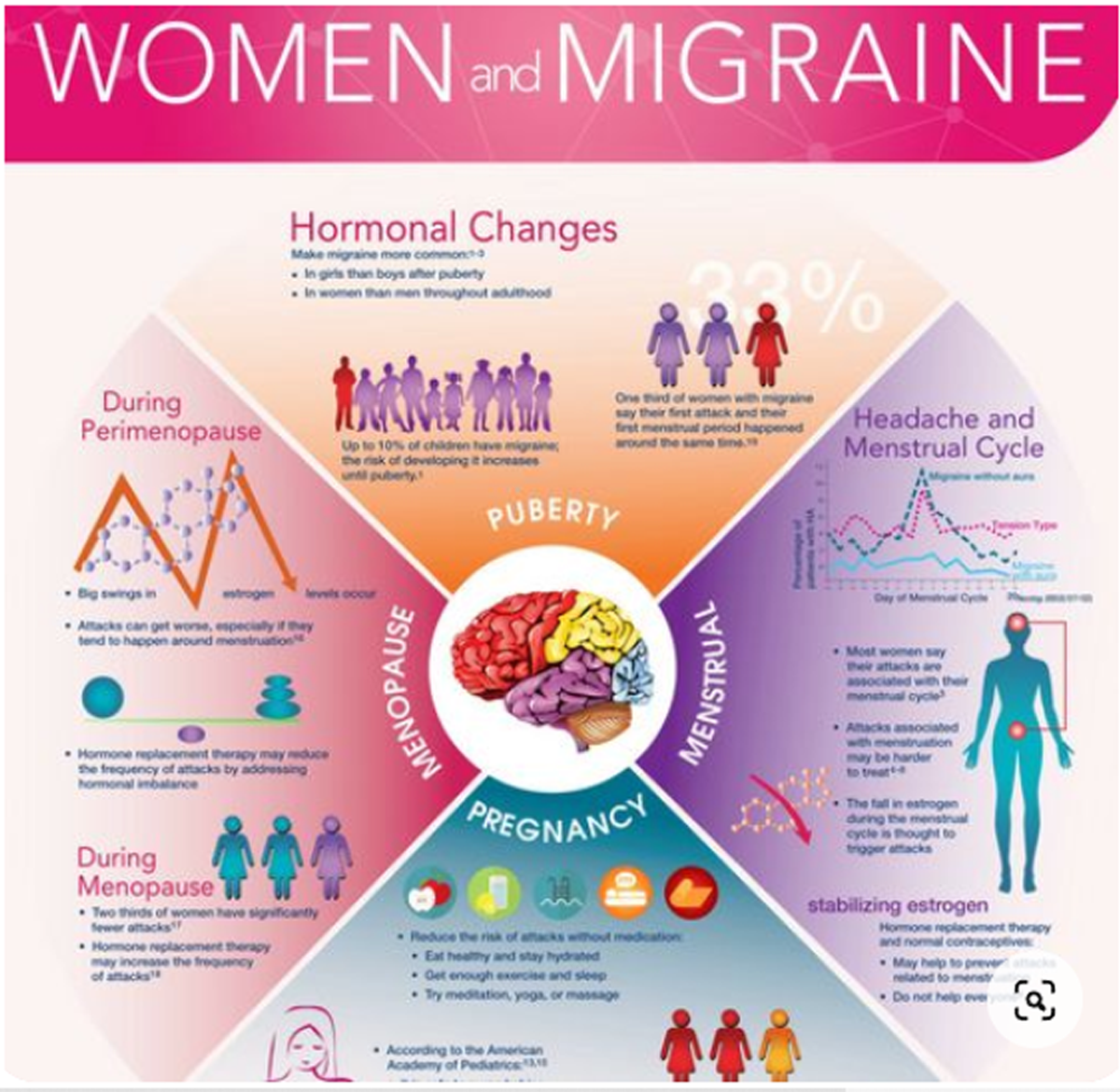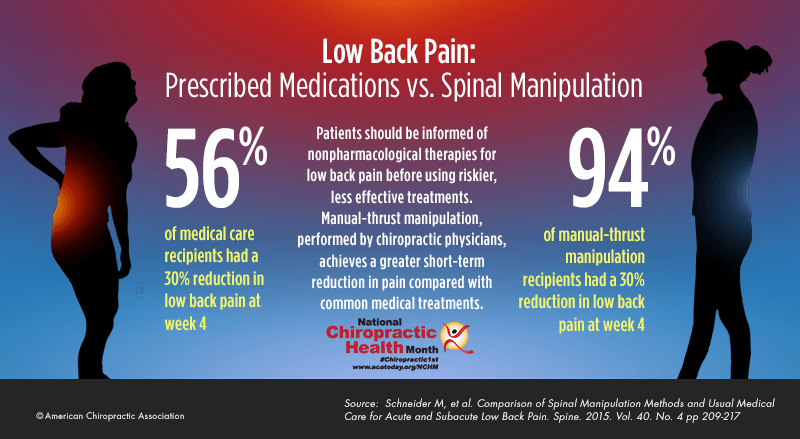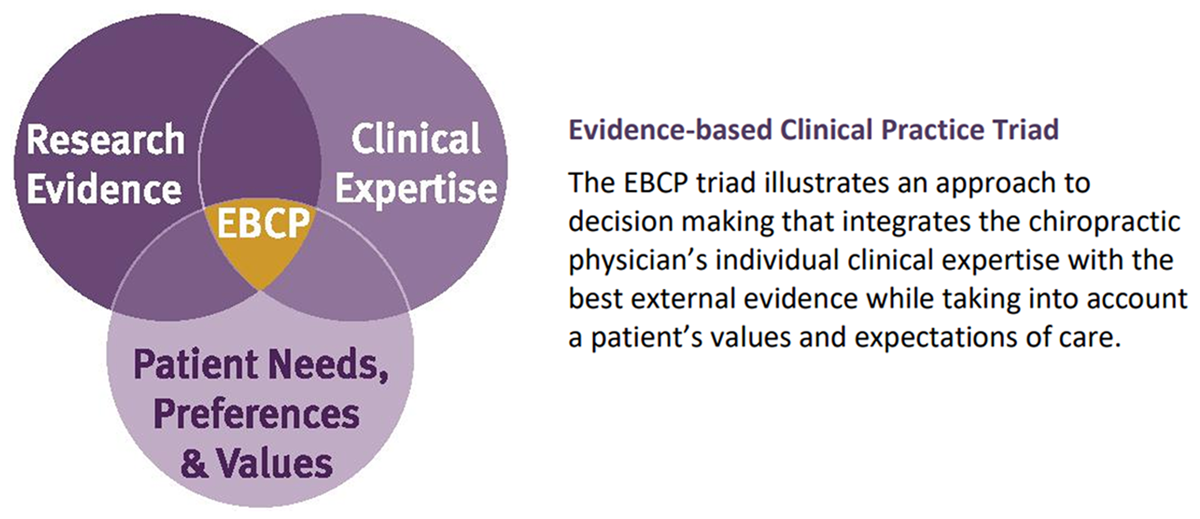$14 Million Research Grant Puts SMT in the Spotlight
SOURCE: Dynamic Chiropractic 2017 (Nov); 35 (11)
| Landmark study could solidify DCs as the first line of care for acute LBP. |
The National Institutes of Health has awarded a $14 million grant to the University of Minnesota and University of Washington to study the benefits of spinal manipulation for back pain vs. standard medical care (including prescription medication).
Touted as one of the largest back pain studies ever funded by the NIH’s National Center for Complementary and Integrative Health, the national, multi-site clinical trial will feature a multidisciplinary research team from the chiropractic, medical, osteopathic, physical therapy and psychology fields, representing a half-dozen universities.
Participating researchers hail from the University of Minnesota (whose
Earl E. Bakken Center for Spirituality & Healing received the bulk of the NIH award for the clinical trial, which will be conducted at the University of Minnesota and the University of Pittsburgh – two of the leading research-based universities in the U.S.), the University of Washington (which received the remaining funds for data management / statistical support), Oregon Health and Sciences University, Duke University, and the University of North Texas.
The “Spinal Manipulation and Patient Self-Management for Preventing Acute to Chronic Back Pain Trial” will compare spinal manipulative therapy and supported self-management vs. usual medical care (including prescription medications). Supported self-care includes behavioral and copies strategies, mind-body approaches, lifestyle advice, and pain education – all designed to address the biopsychosocial aspects of back pain. Nearly 1,200 patients will be enrolled in the study beginning next spring.
Gert Brontfort, DC, PhD, a professor in the Bakken Center’s Integrative Health and Wellbeing Research Program, will serve as lead investigator on the study. Other doctors of chiropractic involved in the study include the University of Pittsburgh’s Michael Schneider, DC, PhD (co-principal investigator for the Clinical Coordinating Center, which will conduct the clinical trial) and Joel Stevens, DC, PhD; Roni Evans, DC, PhD (who directs the Integrative Health and Wellbeing Research Program at the University of Minnesota Bakken Center), and Brent Leininger, DC, MS, also from the U. of Minnesota.
The Earl E. Bakken Center for Spirituality & Healing is partially funded by the NCMIC Foundation. According to Mary Jo Kreitzer, PhD, RN, FAAN, a professor in the School of Nursing at the U. of Minnesota and director of the Bakken Center, “The support of NCMIC Foundation has been pivotal to helping the Center establish a world-class research program in chiropractic and integrative health from the influential platform of a prestigious land-grant university. It has also helped us to advance future research affiliations.”
The Chiropractic Perspective:
Q&A With Drs. Brontfort and Evans
Wanting to better understand this upcoming study and its importance to the chiropractic profession and health care in general, we interviewed Drs. Brontfort and Evans to learn more.
Here’s what they had to say:
Dynamic Chiropractic (DC): Why is this study important for the chiropractic profession?
Dr. Brontfort:
The study is important for the chiropractic profession for several reasons. It is one of first to address SMT for preventing acute low back pain from becoming chronic. Given that one in five acute cases become chronic and these are the most costly and disabling, understanding how spinal manipulation could play a role in reducing chronicity is crucial.
This study also addresses how chiropractors can more effectively enhance their patients’ coping and self-management skills so they are less reliant on pain medications including opioids. Often we hear from chiropractors and other health providers that patients don’t follow advice for things they can do to better manage their pain on their own. This study will test an innovative supported self-management intervention that incorporates evidence-based behavioral strategies to better engage patients in their own self-care. Importantly, the self-management intervention is designed to be readily translated to chiropractors in the field should it prove effective, providing chiropractors with more tools to provide the best patient-centered care.
Dr. Evans:
Overall this really is a landmark trial – it has the potential to firmly place chiropractors as a first line of care for acute LBP. The study is also important in that it is being conducted at two of the largest research-based universities in the United States, the University of Minnesota and University of Pittsburgh, and in collaboration with leading researchers from the medical, psychology, osteopathy, physical therapy, and chiropractic professions. This gives it an enormous amount of visibility and access to a wealth of resources, expanding the ultimate reach and dissemination of this research.
DC: How do you see the results of this study potentially reducing the use of opioids?
Dr. Evans:
This has the potential to have enormous benefit for low back pain sufferers, including the possibility of reducing opioid misuse, addiction, and fatal overdose. LBP is a deceptively complex condition involving biological, psychological and social factors. That is one of the reasons we have brought together a multidisciplinary team of researchers from the medical, osteopathic, psychology, chiropractic and physical therapy professions to do this study.
One of our treatment groups in this study combines SMT with SSM and addresses all these factors in a comprehensive, patient-centered way. We hypothesize that patients getting SMT with SSM will have the best outcomes, including less re-occurrence of low back pain, greater ability to cope and manage their pain, and less need for medication including opioids.
DC: Tell us more about therole the NCMIC Foundation played in laying the groundwork for this study.
Dr. Brontfort:
NCMIC played a pivotal role in providing the support necessary to start up the Integrative Health and Wellbeing Research Program at the Earl E. Bakken Center for Spirituality & Healing, the first research program in the country to focus on chiropractic and its integration at a leading research university in the United States.
By establishing this program, chiropractic researchers have gained unprecedented access to world-class technology and resources, including the essential research infrastructure and collaborative partnerships necessary to conduct a study of this magnitude.
NCMIC’s vision, trust in us as researchers, and investment were essential in bringing this study to fruition; simply put, this study would not have become a reality without the support of NCMIC.





Leave A Comment